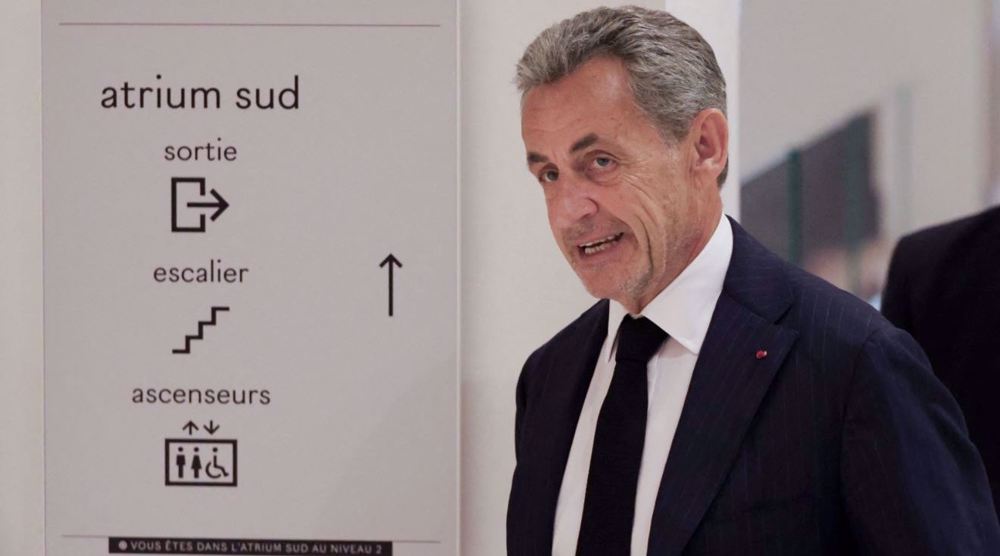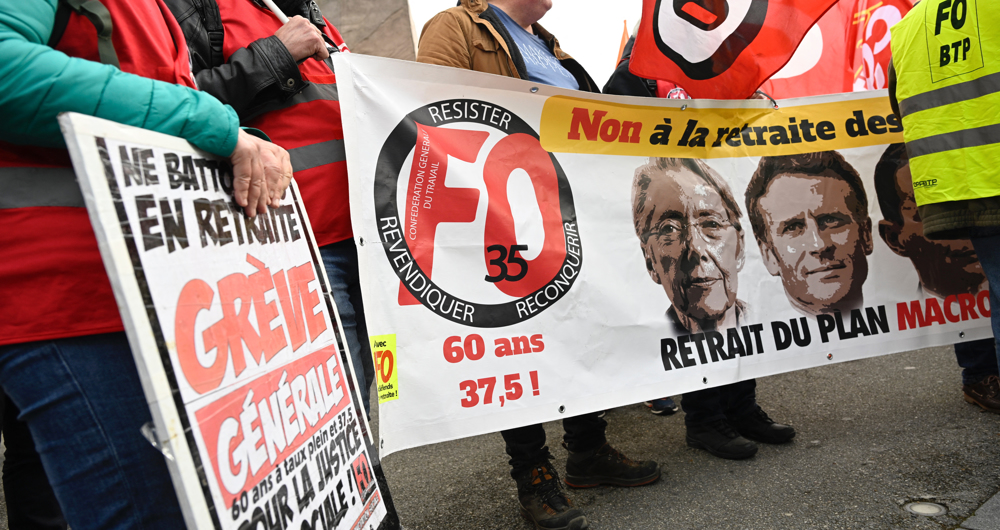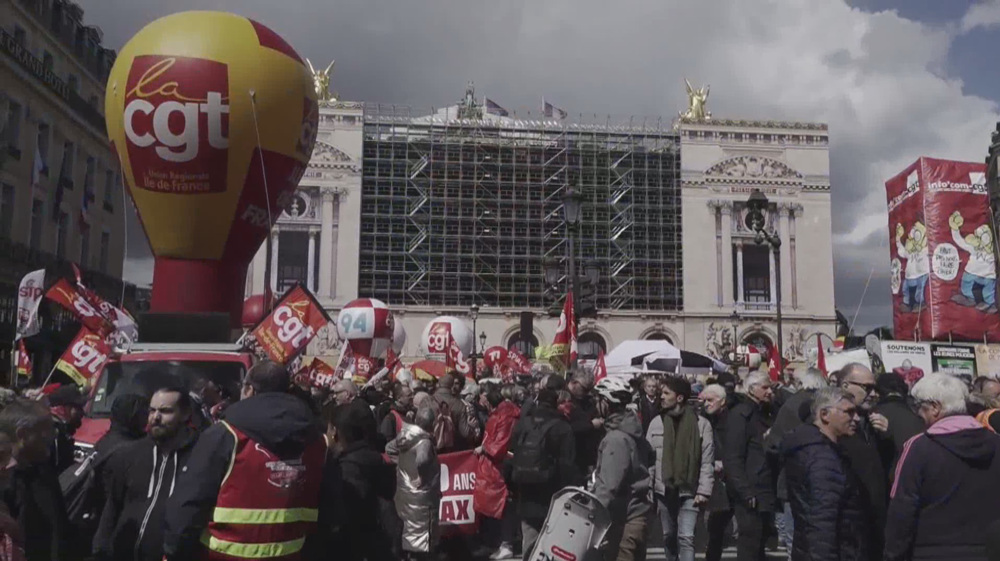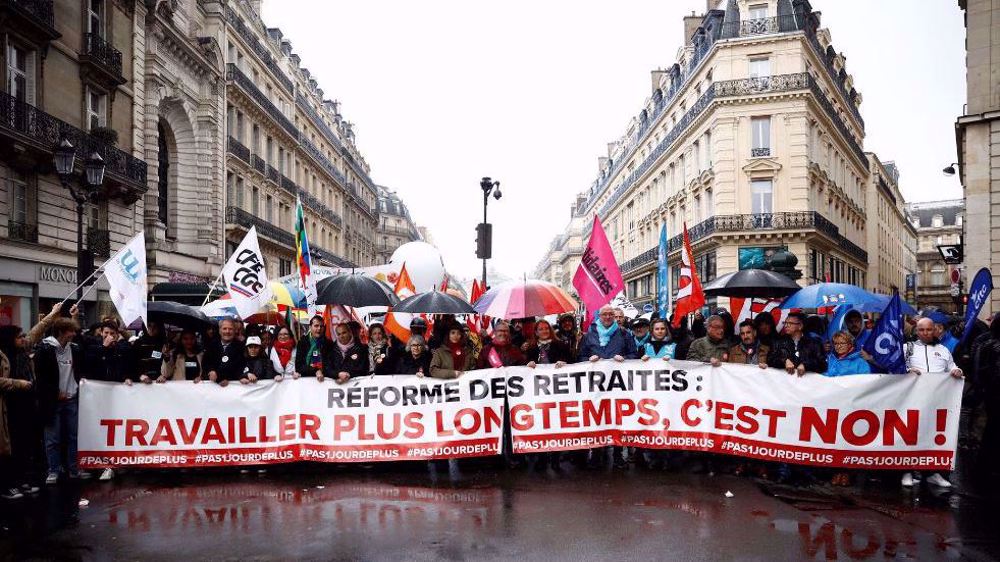Furious French hold casserolade protest against government's pension law
French protesters have once again taken to the streets banging pots and pans to vent their outrage at the government’s highly unpopular pension law that will delay the age at which people can retire in the European country.
People protested to the sound of pots and pans in front of the city halls of Paris, Rennes and Marseille to sarcastically "celebrate" the anniversary of President Emmanuel Macron's re-election, amid ongoing anger over his reforms to the pension system.
The “casserolade” demonstration took place on Monday evening at the behest of ATTAC, an anti-capitalism activist group.
French students also stormed railway stations in the capital Paris in a show of anger at the controversial legislation, which has sparked three months of protests and strikes.
Earlier in the day, the French protesters used their kitchen utensils to greet ministers on official outings, including Health Minister François Braun visiting a hospital in the city of Poitiers and Education Minister Pap Ndiaye, who took a detour in Lyon to avoid the demonstrators.
Last week, Macron was booed and heckled by protesters banging on saucepans during a walkabout in the eastern Alsace region.
Macron said that “it’s not saucepans that will make France move forward.”
It sparked a response from French cookware manufacturer Cristel, which said in a tweet that it was now making stainless steel pans specifically to “advance” the nation.
The French government pushed the contested pension law through parliament in March using an emergency constitutional tool that avoided a vote in the National Assembly.
After France’s highest court approved the law, Macron ignored calls to delay its enactment by signing it in a move that fueled public anger.
The law’s headline measure is raising the minimum retirement age in France to 64, up from 62. It also increases the number of years people have to make contributions for a full pension.
Macron argues that the legislation is essential to prevent the pension system from collapsing.
Trade unions, however, say it is unfair, and would disproportionately affect low-skilled workers in tiring jobs who start their careers early.
Araghchi: Iran never left negotiation table as its nuclear program ‘peaceful’
Jan. 14: ‘Axis of Resistance’ operations against Israeli occupation
VIDEO | UNRWA’s financial crisis deepens amid support cuts
South Korean President Yoon arrested over failed martial law bid
VIDEO | Press TV's news headlines
US budget deficit surges to record $711 billion
VIDEO | Yemeni army conducts three attacks against Israel within 12 hours
VIDEO | Gaza’s kidney patients face imminent death amid lack of fuel
















 This makes it easy to access the Press TV website
This makes it easy to access the Press TV website